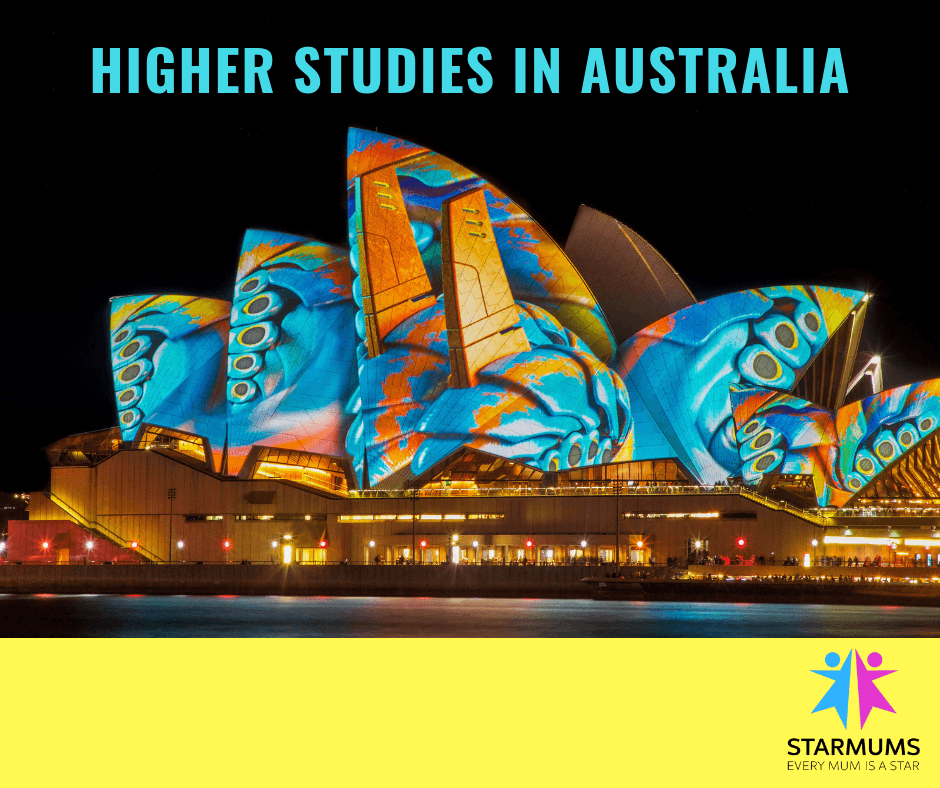Know Your Higher Study Option in Australia.

Education is power! In today’s world having tertiary education is not only an advantage, rather an essential requirement to secure a strong foothold in the fiercely competitive career space. Not to mention that education broadens your horizon greatly and transforms you as an individual. If you are able to get a degree from a Western or European country then that is absolutely the cherry on top of your cake!
Trouble is, Bangladesh does not hold a good reputation when it comes to higher education opportunities in overseas. At least I am talking about Australian visa – which maintains a visa assessment level where Bangladesh falls into level 3/3 . Good news for post-grad/research studies which Australia ranks 2/3.
With its amazing seasonal variety, multi-cultural society, stable economy and laid-back life-style, Australia is considered one of the top destinations for migration and higher studies. There are a number of Australian universities which ranks into the top among all the universities in the world. We collected all of the information that will help you, to plan further if you are still loitering with intent where to study –
Applying to Study in Australia
- Decide on the course and where you want to study. In Australia there are several types of educational institutions –
- Vocational institutions – Diploma degree
- University colleges – Diploma, pathway to Bachelor’s and Master’s degree.
- Universities – Bachelor’s, Master’s and Doctoral studies.
- Submit your application and necessary documents to the institution.
- Receive and accept a Letter of Offer from the institution.
- Receive your electronic Confirmation of Enrolment (eCoE).
- Plan your travel to Australia.
- Applying for your student visa.
- Get student visa approval.
- Fly to Australia!
Language Requirements
Being an English-speaking nation, you must show evidence of English proficiency when you send an application to an Australian university (for example, IELTS which can be taken in your home country). Check out this websites for application process and also how to take preparation.
Visa Requirements
Once you are ready to apply for your school, it is time to process your visa. You must submit all your documents for your visa application in English to proceed with your application. Requirements for a student visa to Australia can be applied using the following documents:
- Acceptance letter from your university, to study a course registered on the Commonwealth Register of Institutions of Courses (CRICOS) in Australia
- Financial stability of a particular amount, usually AUD18,610 showing proof that you will be capable of paying for your living expenses for the first year of your course
- Purchase of Overseas Student Health Cover (OSHC) for health insurance, which might require you to complete a medical check-up
- English language proficiency through your secondary education or English tests such as the IELTS of TOEFL
- Proof of no prior criminal record
- Prior academic record
- Form 157
- Four passport pictures
Tuition Fees
The biggest possible concern for students when considering an education abroad is the annual tuition fees, as listed below here. However, you should be aware that there is a significant difference between tuition fee costs between Australian student and international students like yourself- tuition fees tend to be much higher in Australia for foreigners. Below is just a summary of the tuition fees ranging from top to low ranked institutions. They vary based on the type of institution you will choose.
| Study Level | Tuition Fee range, (AUD Per Year) |
| Foundation/Pre-U | 15,000 – 37,000 |
| Diploma | 4,000 – 22,000 |
| Bachelor’s Degree | 15,000 – 33,000 |
| Master’s Degree | 20,000 – 37,000 |
| Doctorate Degree | 20,000 – 37,000 |
Scholarships
Many international students are interested in gaining a scholarship to help pay for their study in Australia. Scholarships may provide financial assistance with:
- your tuition fees
- your accommodation and living expenses
- both tuition and living costs.
Some scholarships cover the full amount of these costs for the duration of your course, while others cover a proportion of the total cost, cover costs for one year or provide a one-off payment for financial assistance.
Most scholarships are based on academic merit, although there is also some funding available for students from developing countries who are in financial need. Note that some scholarships are restricted to students from certain countries, while others may be related to a specific course, field of study or qualification level (postgraduate degrees, for instance).There are certain approaches you can take that will increase your chances of gaining a scholarship:
- Start researching scholarships as early as possible: Make a list of all potential scholarship providers and all the scholarships for which you are eligible, including the costs they cover, application requirements and application deadlines. Note that some institution scholarships do not require an application; you will be automatically considered when you apply for your course.
- Ensure that you supply all documentation required: Documentation may include academic transcripts, a letter of offer and references. Ensure you obtain certified and translated copies where necessary.
- Check your eligibility for each scholarship: Some scholarships are only available to international students from certain countries, while others may be related to a specific course, field of study or level of study (you might find some scholarships that are restricted to German students studying music, for example).
- Ensure that you fulfil all the necessary criteria: Some scholarships have additional requirements (such as the submission of an essay or personal statement) and have strict terms and conditions (such as word limits and deadlines), so make sure you read all of the fine print on the application form before filling it out.
- Your application should be reviewed by somebody who speaks fluent English: Scholarships committees might overlook your application if it contains grammar or spelling mistakes.
- Apply for as many scholarships as possible: Even if some scholarships are for lesser amounts, any type of funding is better than no funding at all. Be sure to reapply in future years if you miss out or if the scholarship you receive does not cover the full duration of your course.
- Ask for help with applications: If you have any questions about your eligibility or the application requirements, contact the institution or organisation offering the scholarship before applying.
Research scholarship
The Australian government commits $20M funding annually to Australian universities for over 300 International Postgraduate Research Scholarships (IPRS). IPRS enables international students to undertake a postgraduate research qualification in Australia and gain experience with leading Australian researchers. Scholarships are open to international students of all countries (except New Zealand) and are available for a period of two years for a research master’s degree or three years for a research doctorate degree. The scholarship covers tuition fees and health cover costs for scholarship holders, and health cover costs for their dependents. Here is information about some of the major research scholarships programs available for international students:
To find an exact match for the scholarship go to this link and filter your choices. This will produce a list of scholarship applicable based on your qualifications. From that list you then have to go at the individual institutions and meet their criteria to become eligible.
If you are keen and need further guidance, feel free to email – sayem@thestarmums.com for a free online consultation.

